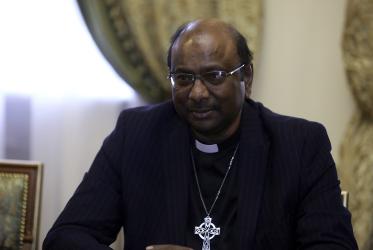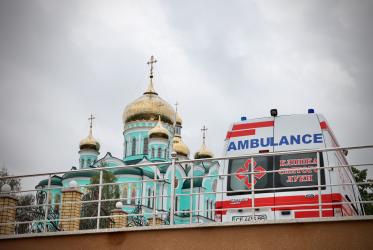Displaying 1 - 20 of 44
En Arménie, le secrétaire général du COE promeut la justice
28 September 2023
In Armenia, WCC general secretary speaks for justice
22 September 2023
Ecumenical delegation visits Armenia
19 September 2023
Répondre aux besoins humanitaires en Ukraine
27 September 2022
Workshop explores how interreligious dialogue brings trust and respect
15 September 2022
Ukraine: Responding to humanitarian need
08 September 2022
Un monastère ukrainien répond aux conséquences de la guerre
11 August 2022
Monastery in Ukraine responds to the consequences of war
09 August 2022













